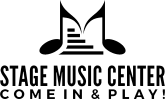ADHD and Focus: How Music Can Help Kids Stay on Track
Ask any parent of a child with ADHD what they hope for during homework time or structured activities, and you'll probably hear the word focus more than once. Attention challenges can make everyday tasks feel like climbing a mountain. But there's one tool that continues to show surprising potential in helping with focus, emotional regulation, and learning: music.
What Makes Music So Powerful?
Music isn't just background noise. It activates multiple parts of the brain at once, including those responsible for attention, memory, and emotion. For neurodivergent individuals, especially those with ADHD, this kind of whole-brain stimulation can help improve concentration and make routine tasks feel less overwhelming.
Researchers have found that rhythmic music, in particular, can help regulate brain waves and support a more calm and focused state. This is one reason why many people with ADHD report that listening to music while working actually helps them stay on task rather than distracts them.
Parents often notice that certain styles—like lo-fi beats, classical pieces, or even instrumental movie soundtracks—seem to create a kind of "focus bubble" around their child. It’s not magic. It’s structure, rhythm, and emotion working together.
And then there’s the “Coconut Mall” effect. If you’ve spent any time on YouTube or TikTok, you’ve probably heard of people looping the upbeat Mario Kart soundtrack for hours while studying, coding, or cleaning. It’s catchy, rhythmic, and just stimulating enough to keep the brain engaged without getting in the way.
The Science Behind It
Several studies have suggested that music can support attention and working memory in children and adults with ADHD. For example, a study from the American Academy of Pediatrics found that background music with a steady tempo helped children complete tasks more accurately and with fewer distractions. Other research points to dopamine release during music listening, which can positively impact motivation and mood—both common challenges for people with ADHD.
Interestingly, some evidence suggests that people with ADHD might actually perform better with a certain level of background noise. This is sometimes called "stochastic resonance" and its when a small amount of sensory input, like soft music, helps the brain filter out other distractions. It’s a bit like giving the brain just enough stimulation to stay engaged without feeling overloaded.
Neuroscientists are continuing to explore how music can interact with the executive functions of the brain, which include planning, impulse control, and emotional regulation—all areas that can be especially difficult for kids with ADHD.
Music Education as a Long-Term Support
Beyond passive listening, learning music can offer even more benefits. Playing an instrument requires focus, discipline, and memory. It trains the brain to track patterns, practice consistently, and follow sequences—all while expressing creativity.
In many cases, learning music can help kids with ADHD channel their energy in positive and productive ways. The physical aspects of playing an instrument—like drumming or pressing piano keys—can also offer a tactile outlet for excess energy.
At Stage Music Center in Winchester and Acton, we've seen firsthand how music education can be transformational for students with ADHD and other forms of neurodivergence. Instructors adapt lessons to each student's pace and interests, using short, engaging segments to keep attention high. This flexibility can make learning feel empowering rather than frustrating.
Group music lessons and ensemble classes can also support social development, giving students the chance to collaborate, communicate, and succeed as part of a team—without the pressure of competition that comes with many sports or academic settings.
Tips for Parents and Students
If you're thinking about music lessons for a child with ADHD, here are a few things to keep in mind:
Choose an instrument your child is excited about. Motivation is everything.
Look for a teacher experienced with neurodiverse learners.
Start with short sessions and build stamina gradually.
Encourage exploration and improvisation—this keeps things fun and pressure-free.
Be patient. Every child progresses differently, and that’s okay.
Consider creating a music-friendly space at home that invites regular (but casual) practice.
Music can be a source of joy—not just structure. It’s important that kids don’t feel like it’s another task to “get right.”
Final Thought
Music isn't a cure for ADHD, but it's a powerful tool that can make a big difference. Whether through listening or learning, music offers structure, expression, and joy—a combination that helps the brain find its rhythm, even when attention feels hard to hold onto.
At Stage Music Center in Winchester and Acton, we’re passionate about helping every student find their unique path in music, especially those who learn and focus differently. If your child is struggling with attention, or if you're simply looking for an enriching and confidence-building activity, music lessons might be a great step forward.
Sign up for Music Lessons in Acton and Winchester, MA
At Stage Music Center, we're passionate about helping you nurture your musical talents.
Our one-on-one voice lessons in Acton and Winchester, MA, provide personalized training to help you develop singing skills.
Our music school offers convenient access to students from nearby communities like Stoneham, Woburn, Arlington, Medford, Lexington, Carlisle, Concord, Westford, and Littleton.
Learn more about our music lessons.
Register online or contact us for more information.



